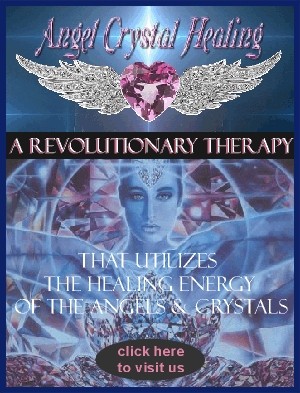Healing with Angel Harp Music
Music is an integral part of our daily lives and makes the world a more pleasurable place to reside. But does music have healing properties? Can the "angelic" quality inherent in the harp also have an "analgesic" effect on chronic illnesses such as multiple sclerosis, lupus, or fibromyalgia? Growing contingents of music therapists who have studied and practiced harp therapy in hospitals and nursing homes believe that the answer is a qualified "yes."
The harp has been used in healing since ancient times. Biblical accounts describe David playing his small harp to calm the king's nerves. Queen Elizabeth I had harpers in her court to relieve anxiety as well. Just looking at the instrument brings feelings of awe, wonder, and peace. Both religious and non-religious people think of angels when they see the harp, and often describe its sound as heavenly.
The harp is being revived in healing today. Harp therapy programs exist for people to learn not just to play the harp, but how to choose music for a patient's particular needs. Here are just a few of the benefits harp music offers, whether to patients in hospitals, busy moms, energetic children avoiding bedtime, or others.
According to The Harp Therapy Journal, there are certain characteristics that make the harp a unique instrument for therapy. They include:
•The harp's classic significance as an ancient, spiritual healing instrument, which opens doors to the collective unconscious and, therefore, may facilitate the healing process.
•A wide pitch range (low C-32.703 Hz to high G-3136.0 Hz), which can vibrate the entire human body.
•A varied and soothing palette of tone colors.
•The unique glissando technique using enharmonic tones which creates an ethereal effect
•The tension release associated with the emotional expression of plucking its strings, (as Pythagoras suggested when he saw the strings as symbols of the nervous system).
•The instrument's vibratory effect on the harpist's body, particularly the thymus gland, a major gland of the immune system located in the chest
Harp therapy improves immune system functioning
In a study done with college students, blood tests showed increased immune cells after listening to an hour of harp music without commercials. When there was no music, levels neither decreased nor increased. When the music was easy-listening with commercials, immune cells dropped marginally. And the highest drop occurred when students listened to an hour of rock music with commercials.
The same is true after trauma. Cells have re-generated with regular exposure to harp therapy, where the notes (frequencies) played are chosen to match the needs of each patient at that particular time.
Healing music decreases blood pressure and recovery time
Even in operating rooms, when patients are under anesthesia, harp music is beneficial. Blood pressures remains steadily low, decreasing complications during surgery. The music also offers pain and anxiety relief after surgery. This increased sense of hope and relaxation not only decreases the need for pain medication, but also shortens recovery time from surgery and trauma.
Emotional Benefits of Harp Music
Harp therapist Elsie Tysseland played her harp for a Mexican children's clinic where all the children were handicapped and some could not speak. When she arrived the staff and children were hurried, distraught, Music is comforting.
Not all musical benefits can be measured. But musicians, patients, parents and children agree that music is comforting. Harpers, especially, see this in hospis work, playing for cancer patients, autistic children, and others. Music helps people forget the mundane, physical world and remember a safe emotional place. It also connects people to their higher power, whether God, Goddess, Universe, Source, or anything else they choose to call it.
Music is non-religious. Of course, there is religious and sacred music. However, music does not require religious or spiritual beliefs to provide comfort, relaxation, and improved outlook and hope.
Harp therapy is non-intrusive. It is complimentary to any and all other treatments. So, the next time you feel stressed or anxious about something, even a visit to the dentist, listen to some harp music, breathe deeply, and feel yourself relax.
In : Sound Healing
Tags: angel_music angelic_music harp_music healing_music harp_therapy god goddess universe source angelic_harps


